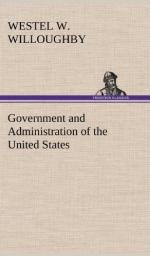1. The want of some compulsory means of enforcing obedience to the acts of Congress. The articles provided neither an executive power nor a national judiciary worth mentioning. As one writer has said: “Congress could declare everything, but do nothing.” A single colony could with impunity disregard any decree of the Congress.
2. The large vote required to pass all important measures.
3. The absence of the right to regulate foreign commerce, and make duties uniform, and to collect those duties. This defect, as we shall find, was one of the most vital, and more than any thing else decreed the failure of the practical working of the Confederation, and showed the necessity of a better and stronger National government.
4. The virtual impossibility of amendment. Since a unanimous vote was required, the selfish interest of one State could, and did, stand in the way of an amendment beneficial and necessary to the other twelve.
5. There was no power to enforce treaties. Foreign countries recognized this, and therefore refused to enter into any treaties with us. Washington said: “We are one nation to-day, and thirteen to-morrow. Who will treat with us on such terms.”
England refused to carry out the conditions of the treaty of 1783, and continued to keep troops on our Western borders.
6. The central authority had insufficient power to control disputes arising between the States.
7. The lack of a Federal judiciary.
8. Lack of power to collect taxes, or to raise revenue to defray even the ordinary expenses of government. This was the most striking and important defect of them all. The whole power given to Congress under this head was the power “to ascertain the sum necessary to be raised for the service of the United States, and apportion the rate or proportion on each State.” The collection of such taxes was left to the States themselves, and if they refused (as they frequently did) the Federal Government had no power to compel them.
Our present better government was “wrung from the grinding necessities of a reluctant people.”
_#Adoption of the Constitution.#_—Actual hostilities ceased in 1781. In 1783 peace with England was declared, and the independence of the colonies was achieved. The war left the American people with an empty treasury, and a country drained of its wealth and impoverished by the exhaustive struggle. It left us with a large national debt, both to our own citizens and friends abroad, and most of all, left us with an army of unpaid patriotic soldiers. And no sooner had foreign danger been removed than domestic troubles arose which filled all with gloomy forebodings for the future. With the loss of that cohesive principle which common danger supplied them, the colonies now began to fall apart. Even during the progress of the war the weakness of the Union had shown itself. Washington unhesitatingly declared




